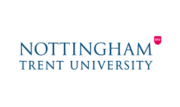Opis tego kierunku w języku polskim znajdziesz tutaj:
https://studiawanglii.pl/courses/wloski-i-historia/
Combine the study of the Italian language and culture with discovering and understanding the past through a range of skills and approaches.
This degree enables you to shape your study according to your strengths, interests and career ambitions. Combining these two subjects gives your degree an international and industry perspective that will make you stand out in the graduate employment market.
Our course combinations are designed so that what you learn in one subject will complement and enhance what you learn in the other. In your final year you can choose either to split your time evenly between your two subjects, or to specialise in one. Our flexible curriculum has been designed to create some amazing opportunities for you too. Students studying a language can choose to spend a year abroad, allowing you to increase your foreign language fluency and understanding of other cultures.
By choosing History and Italian you’ll enjoy the freedom to choose from a wide range of optional modules, depending on your own preferences and interests. Your knowledge of world history will inform and enrich your studies of Italian culture and society.
- Study Italian from beginners, GCSE or Post A-Level.
- NTU’s Italian courses are Number One in the UK for student satisfaction (NSS 2018).
- 100% student satisfaction rate for Italian Studies (NSS 2018).
- 90% of History joint honours students would recommend studying at NTU (NSS 2018).
- 92% of our History joint honours graduates are in work or further study within just six months of finishing their degree (DLHE 2016 /17).
- Take part in a language-themed work placement.
- Gain practical skills in translation and interpreting.
- Take a year abroad in France or Italy.
Careers and employability
This is a major part of the curriculum. Key transferable skills are emphasised and there are opportunities to develop links with organisations and potential employers. Joint honours courses develop a wide range of skills. These include written and oral communication skills, critical analysis and a variety of IT skills. But you’ll also become more self-motivated, be able to work independently and in teams, and develop excellent time management skills.
Many graduates also choose to undertake further study on one of our Masters-level courses or MPhil and PhD research degrees.




















